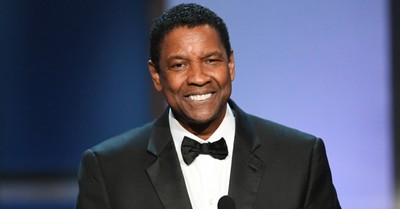Keep a Short Account with Your Mate
- Updated Mar 31, 2011

Editor's Note: Do you need sound, Biblically-based advice on an issue in your marriage or family? Dr. David will address questions from Crosswalk readers in each weekly column. Submit your question to him at TheRelationshipDoctor@gmail.com.
It seems not a day goes by without injuring our mate with a sharp remark here or a sarcastic comment there. While we may “mean nothing” by our comments, our mate has nonetheless been injured and a healing action needs to occur.
Many people seem to make these comments far too frequently to call them "mistakes." I’ve said before that a hurtful comment here and there can be handled quite easily, but a pattern of hurtful comments indicates a far deeper problem. In either case, you must develop within your relationship the ability to keep short accounts.
Let me further explain what I mean by this.
Whenever there is an injury, no matter how small, there must be repairs. Let me offer you a small, nearly insignificant situation from my own life.
Just the other day I was sitting with my wife and her father and commented on my excitement about a program for my phone that would translate English into Spanish. I planned on using it on our upcoming trip.
“There’s no way I’m going to have you use that program on your phone,” she said sharply. “I don’t want you pulling out your phone when we’re in a restaurant and having that thing talk out the right words in Spanish.”
I was immediately put off by her comments—nearly insignificant, but enough to hurt my feelings slightly. While she had no intent of hurting my feelings, her tone and the manner in which she made her point were enough to break our connection.
What happened next was critical for Christie and myself, and will be critical in your relationships as well. It is at this intersection that couples often make one or more mistakes:
- One bites back with something equally hurtful such as a sarcastic comment;
- One withdraws after feeling wounded, adding an element of confusion into the relationship;
- One seemingly ignores the hurt, but stores it up for retaliation later on.
Can you see how toxic each of these responses is to the relationship? Can you see how damaging a seemingly insignificant comment can be in breaking a connection between two people?
Fortunately, Christie immediately noticed my wincing at her words. She stopped what she was doing, gently touched my arm and apologized for saying what she said in such a sharp tone. Noting her compassion and sincerity, I immediately accepted her apology and our relationship was back to normal. A potentially damaging situation was quickly remedied and the trust between us grew stronger. The account between us was kept short.
A woman wrote to me recently with a similar problem. Consider her concerns and how they may relate to your relationships.
Dear Dr. David, I try to talk with my boyfriend about listening to me about how he has affected me, my daughter and my son, and the impact his temper has on me. He apologizes and then does it again. I’m not sure he’s ever really sorry, and meanwhile I learn to not trust him. I find myself withdrawing and holding my feelings to myself. What do you suggest when someone you love hurts your feelings again and again?
We can see in both the situation between my wife and me, and this woman’s issue with her boyfriend, that being heard, attended to and the problem remedied is critical to the well-being of the relationship. Had Christie not apologized to me, I’m not sure what I would have done. I would probably have “acted out” in one of the destructive ways listed above or perhaps like the woman who wrote to me, by slowly losing trust.
Let’s consider the healthy ways to react to an irritation, insult or emotional wound.
First, be honest with yourself about the wound. It does no good to tell yourself you haven’t been wounded when you know you have. You must take a few moments and acknowledge the infraction. What happened, and why do you feel the way you do?
Second, do not go on the offensive. Don’t “fight fire with fire,” as the saying goes. Scripture instructs us to have a fitting word for every situation and any time we feel unfairly criticized is certainly such an occasion. These incidences, in any kind of relationship, are not opportunities to be on our worst behavior but actually our best.
Third, our best behavior means responding in a H.A.R.D. way — Honest, Appropriate, Respectful and Direct. When we have been genuinely wounded and cannot ignore a troubling situation, we must address the person who has wounded us, but we must do so in the HARD way. Being assertive and confronting the person will keep the air clear and the accounts short.
Fourth, while we must often share how we’ve been hurt by someone’s comments, we cannot control how they will respond. Fortunately for me, Christie spontaneously noticed my hurt and apologized. This was an optimal situation. Such was not the case for the woman writing to me. All we can ever do is be clear about how someone’s comments have impacted us, ask for what we need and allow the other to respond the way they will.
Finally, how a person responds to our feedback says a lot about them. The way Christie responded to my hurt strengthened my respect and trust for her. Had she not immediately apologized I would have had to say something --- the way she responded would have said a lot about her.
Again, remember that relationships are dynamic — always changing. No one is perfect and if you dare dance close to another person, your feelings will get hurt somewhere along the line. Usually the closer you dance, the more you may get hurt. I believe it is good to take chances, but it's also important to be honest with others about how their behavior impacts you, being willing to explore your own feelings. Every time you heal a wound --- most often unintended — you create a more intimate relationship.
So, how have you handled small hurts and wounds in your relationships? I’d love to hear from you.




















